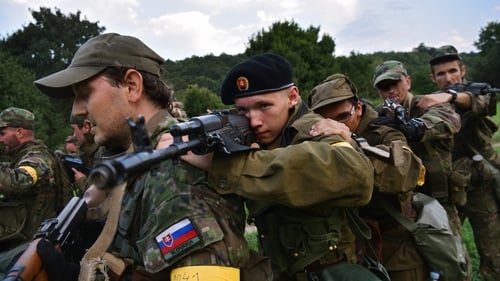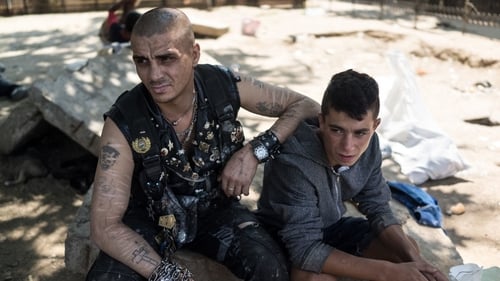
Co-Producer
After years together, Petr and Hana, partners in work and in life, share their unspoken erotic fantasies. What begins as an innocent conversation gradually turns into curious experimentation with a non-monogamous approach to their relationship. But sexual freedom tastes differently for each of them. Without resorting to exploitation, Tomasz Wiński’s feature debut considers questions that are taboo for many couples. Borders of Love explores not only various forms of intimacy but also ways of depicting it on the big screen, since, among others, the protagonists themselves film each other on their mobile phones. Appearing in the main roles are Matyáš Řezníček and Hana Vagnerová, who collaborated on the film’s story and script as well.

Camera Operator
Láďa is always joking. Petr has his own incomprehensible dictionary. Jana seeks a partner via a dating service. They are linked through their joy in music and their involvement in the group founded more than 20 years ago by bandmaster Šimon Ornest. Strictly, almost despotically, without pity but with great energy and understanding, he not only leads his musicians to a place on the music scene but is also their support and friend.

Screenplay
Láďa is always joking. Petr has his own incomprehensible dictionary. Jana seeks a partner via a dating service. They are linked through their joy in music and their involvement in the group founded more than 20 years ago by bandmaster Šimon Ornest. Strictly, almost despotically, without pity but with great energy and understanding, he not only leads his musicians to a place on the music scene but is also their support and friend.

Director
Láďa is always joking. Petr has his own incomprehensible dictionary. Jana seeks a partner via a dating service. They are linked through their joy in music and their involvement in the group founded more than 20 years ago by bandmaster Šimon Ornest. Strictly, almost despotically, without pity but with great energy and understanding, he not only leads his musicians to a place on the music scene but is also their support and friend.

Producer
Hundreds of teenagers join the Slovak Recruits paramilitary group to get ready for the final clash of civilizations and to fight whoever invades their country.

Co-Producer
Nicu, a homeless street kid, is adopted by the notorious 'Bruce Lee' and brought up in the subterranean tunnels of Bucharest. As he grows up, he begins to realise that this 'King of the Underworld' may not be the father that he needs. Filmed over five years by photographer Joost Vandebrug, the film is a real life Oliver Twist story about growing up, and finding a family.

Producer
Activism, direct observation, and situational documentary inconspicuously linger about the constantly delayed construction of the D8 motorway. Local residents, a Brno-based activist and the construction chief shatter the clichés of contemporary documentary film - among other things in who we should root for. The local mixes with the global just like economics and the environment.

Screenplay

Director

Producer
Relationship between two women – mother and daughter in the second half of the 20th century. The story takes place in a old family house. The mother is confined to bed unable to move in her daughter's custody. The daughter comes in her mother's room to take care of her with a confession to tell. Something happened with her son and her mother's grandson three years ago.

Co-Producer
Paul (23) and Radu (53) are a couple in crisis. They are visited every day in their home by a small film crew. Together with the filmmaker, they go through a “deconstruction of memory” process, via procedures such as intimate video diaries, exercises inspired from family constellations, re-enactments of key memories and dreams, in an attempt to make sense of their explosive relationship.

Producer
When the world was on fire, they called Hans Blix. This is how the Swedish diplomat is introduced in ‘Blix Not Bombs’. And if there is one fire he is particularly associated with, it is the 2003 invasion of Iraq. Prior to the invasion, Blix led the delegation of UN officials to find out whether weapons of mass destruction were present in Iraq. And it is the invasion and its consequences that we get Blix’s formidably insightful analysis of in a thorough and honest conversation with director Greta Stocklassa. Few others understand the complexities of international politics on the world stage like Blix, and none can explain it with his intellectual elegance. But Stocklassa’s film is also a portrait of the man himself, now an elderly gentleman, writing his memoirs, walking with a cane and watching birds through the window of his apartment. His outlook and commitment is as urgent as ever, as Blix takes stock of the invasion of Iraq and the state of the world today.









